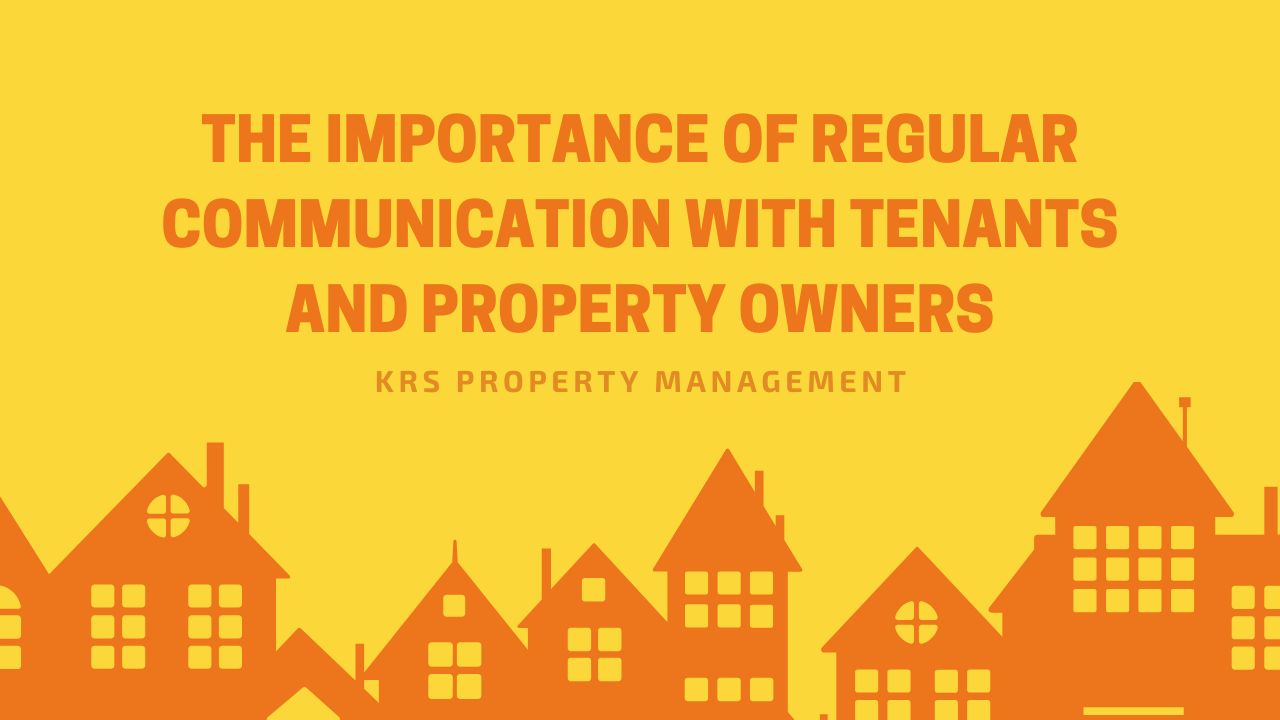Key Takeaways
Communication Builds Trust: Consistent updates give owners peace of mind and help tenants feel respected.
Systems Prevent Problems: Routine check-ins and clear responses stop small issues from becoming costly ones.
Modern Tools Strengthen Relationships: Portals, reminders, and digital tracking make communication simple and transparent.
Ask anyone who has owned a rental for more than a year, and they will tell you communication is the glue that keeps things together. Without it, even the nicest property can turn into a source of stress.
In this guide from KRS Property Management, we’ll explore how regular updates between landlords and tenants make all the difference.
Owners end up wondering what is going on. Tenants start feeling like no one is listening. But when updates flow regularly? Everything runs smoothly. The property stays in better shape, owners know where things stand, and tenants feel like someone actually cares.
Why Proper Communication is Crucial
It is not just about answering the phone or sending a rent reminder. Real communication in property management means being proactive. Maybe it is letting an owner know the roof will need work next season. Or giving a tenant a heads-up before a repair crew arrives.
Little things, yes, but they add up. The alternative is silence, and silence usually means small problems become expensive problems.
How Owners Benefit From Regular Communication
Most owners want the same thing: a clear picture of their property without having to micromanage. They do not want a surprise bill for a repair that has been brewing for months.
.jpg)
They want to know the rent came in, that the place is in good condition, and that someone is paying attention to market trends. The best property managers make that happen with steady updates, detailed repair reports, and honest conversations.
How Tenants Benefit From Regular Communication
It is easy to forget that tenants are part of the equation. They also need good communication to feel secure. Think about a tenant who reports a leaky faucet and gets a quick reply—not even a fix yet, just a confirmation that the request is in motion.
That alone builds trust. Add clear guidelines about the lease and expectations for property care, and you have a tenant who knows where they stand. When people feel respected, they tend to treat the property with more respect, too.
How to Make Communication Routine
You cannot just hope it will happen. The best property managers have systems. Maybe it is a set day each month for owner updates. Or a promise to acknowledge maintenance requests within 24 hours.
It might mean using multiple channels—email for most things, phone calls for the big stuff, and an online portal for everything else. The method matters less than the consistency. People simply want to know they are being heard.
The Role of Modern Tools
Technology has taken away most excuses for poor communication. Owner and tenant portals allow 24/7 access to statements, requests, and updates. Automated reminders cut down on missed payments or forgotten inspections.
.jpg)
Maintenance tracking lets everyone see the status of a repair without chasing phone calls. Digital signatures make lease renewals fast and painless.
Companies like Raleigh Property Management use these features in their tenant services, which keep things transparent and simple. It is not replacing the human side—it is backing it up.
Using Communication as Risk Prevention
The Institute of Real Estate Management points out something many overlook: open, consistent communication reduces legal and financial risks. Clear lease explanations at the start prevent disputes later. Documented maintenance creates a record for landlord insurance claims.
Even safety updates, like letting tenants know about upcoming work, keep everyone on the same page. For owners, that means fewer surprises and fewer problems that escalate.
Building Trust Over Time
Property management is not just a business—it is a relationship game. Owners want to trust their manager. Tenants want to trust the person handling their home.
That trust does not happen overnight. It grows from every check-in, every returned call, every time you share an update without being asked.
As Landlord Studio notes, it is the everyday moments that create loyalty. And loyalty means fewer vacancies, better property care, and a stronger reputation.
Common Communication Mistakes to Avoid
Communication may go wrong even with good intentions.

These are some of the mistakes that should be avoided so as to maintain the strength of a relationship and avoid tension.
Slow Response Times: People do not feel addressed well after taking too long to respond.
Bogging Down in Detail: The owners do not need to be told about every little repair.
Failure to Follow Up: Failing to do a follow-up on something you said you would follow up on kills trust.
One-Way Updates: It should not be shouting all the time; it should be conversational.
A Lack of Tailoring of The Message: Owners and tenants require different kinds of information.
Avoiding these pitfalls makes your update successful and helps create better relations with all people involved.
Simple Ways to Improve Communication
Creating better communication does not necessarily include new software or large processes. A lot of little things can change a lot. Put clear expectations in writing early on. Owners and tenants should know what to expect and by when.
Confirm Messages Response Early: Even though responding to a tenant request may require time to complete, acknowledge the request.
Take Initiative: Provide information even when people do not have to request it.
Be Simple in Language: Tenants do not understand industry lingo, nor would first-time investors.
Make Routine Check-Ins: Routine check-ins can usher in helpful feedback with an easy inquiry on how things are doing.
These small actions tell you that you care, and it helps to avoid small troubles that turn into big ones.
Final Thoughts
Regular communication might seem simple, but it is the quiet force behind every well-run property. It stops misunderstandings before they start. It makes owners confident in their investment.
It keeps tenants feeling safe and respected. The right property manager does not disappear until rent is due. They sustain the dialog on a year-round basis.
KRS Property Management has said that is how they take that responsibility and blend the personal attention with the systems in place, so no one ever has to wonder what is going on. And that is precisely the kind of management to preserve properties profitable and relationships intact.







